You are here
New Releases
Operational Guideline on The Minimum Initial Service Package (MISP) for Reproductive Health Implementation in Health Crisis
In 2008, the Ministry of Health of the Republic of Indonesia developed a programme for reproductive health (RH) services in disaster situations which was then implemented throughout Indonesia. At that time, the implementation was based on the guideline on reproductive health in disaster situations, translated from the Inter-Agency Working Group (IAWG) on Reproductive Health in Crises international guideline.
Since 2014, the guideline has been adapted to suit Indonesia’s context with the publication of the Minimum Initial Service Package (MISP) for Reproductive Health in Crisis Situations. This MISP for RH guideline was developed based on field experiences and practices in the provision of reproductive health services in crisis situations from the tsunami that struck Aceh in 2004 until more recent disasters in 2017.
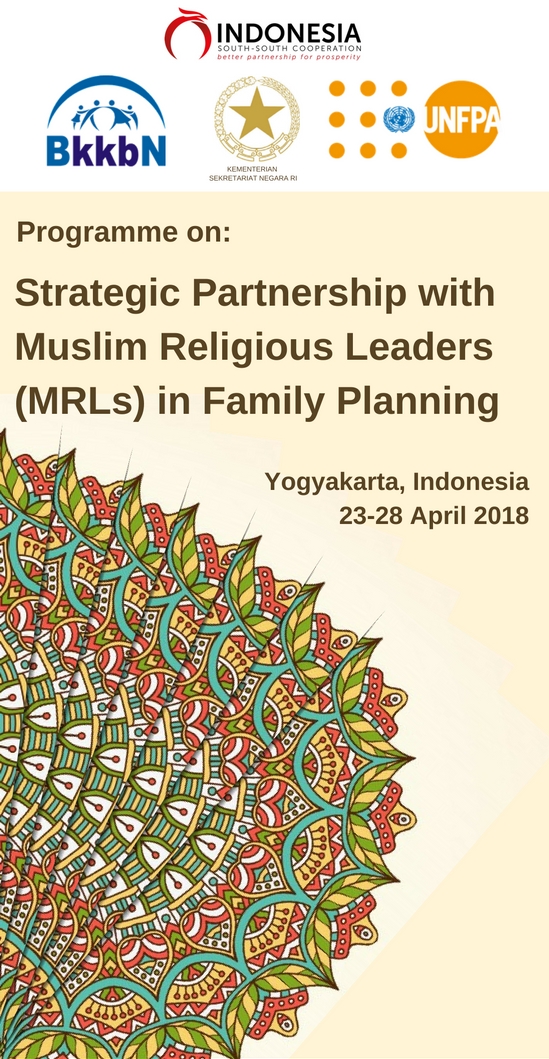
Scholarship to join International Training on Strategic partnership with Muslim Religious Leaders in Family Planning, Yogyakarta, 23-28 April 2018
The Government of Indonesia under the framework of the South-South and Triangular Cooperation programme, with technical assistance from UNFPA, will host a training session on "Strategic Partnerships with Muslim Religious Leaders in Family Planning", in Yogyakarta, Indonesia, from 23-28 April 2018.
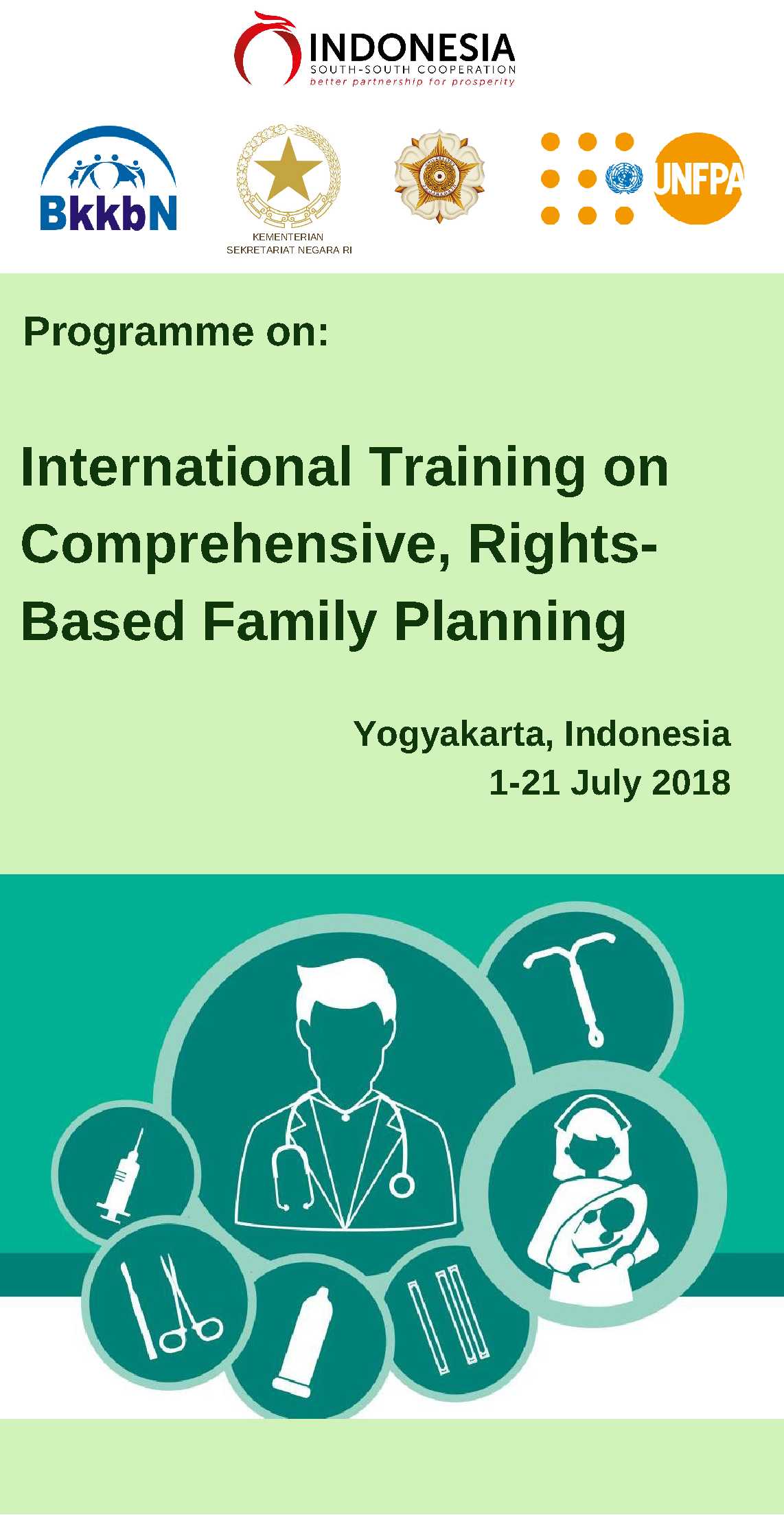
Government of Indonesia Partial Scholarship - SSTC Clinical Training on Comprehensive, Rights-Based Family Planning, Yogyakarta, 1-21 July 2018
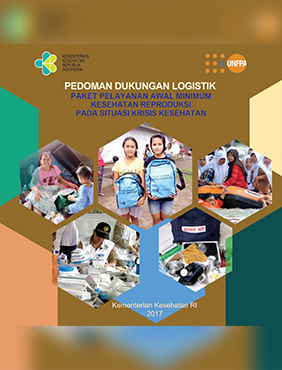
Pedoman Dukungan Logistik Paket Pelayanan Awal Minimum Kesehatan Reproduksi Pada Situasi Krisis Kesehatan
The guideline for logistics support of Minimum Initial Services Package for Reproductive Health in Crisis Situations is a comprehensive guide tailored for Indonesia. It provides guidance to health workers and programme managers in implementing the MISP for reproductive health in crisis situations.
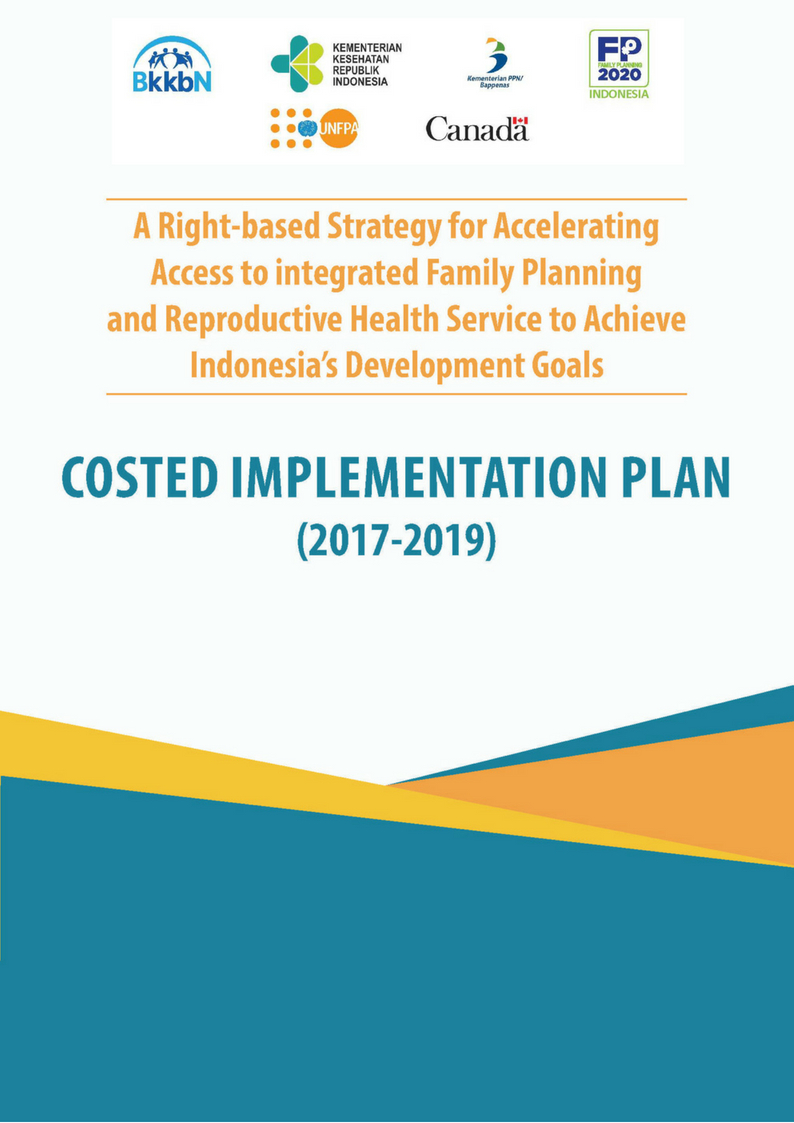
Costed Implementation Plan (2017-2019) - Rights Based Family Planning Strategy
Indonesia’s Rights-based National Family Planning Strategy (2017-2019) integrates and builds on existing government plans with the objective of accelerating the achievement of national development goals including Indonesia’s FP2020 target. In order to implement this strategy, a road map was developed that outlineseffective, efficient and actionable interventions/activitiesto be implementedover the course of the next three years (2017-2019). This report presents the results of a costing exercise done in early 2017 to estimate resource requirementsfor that road map.
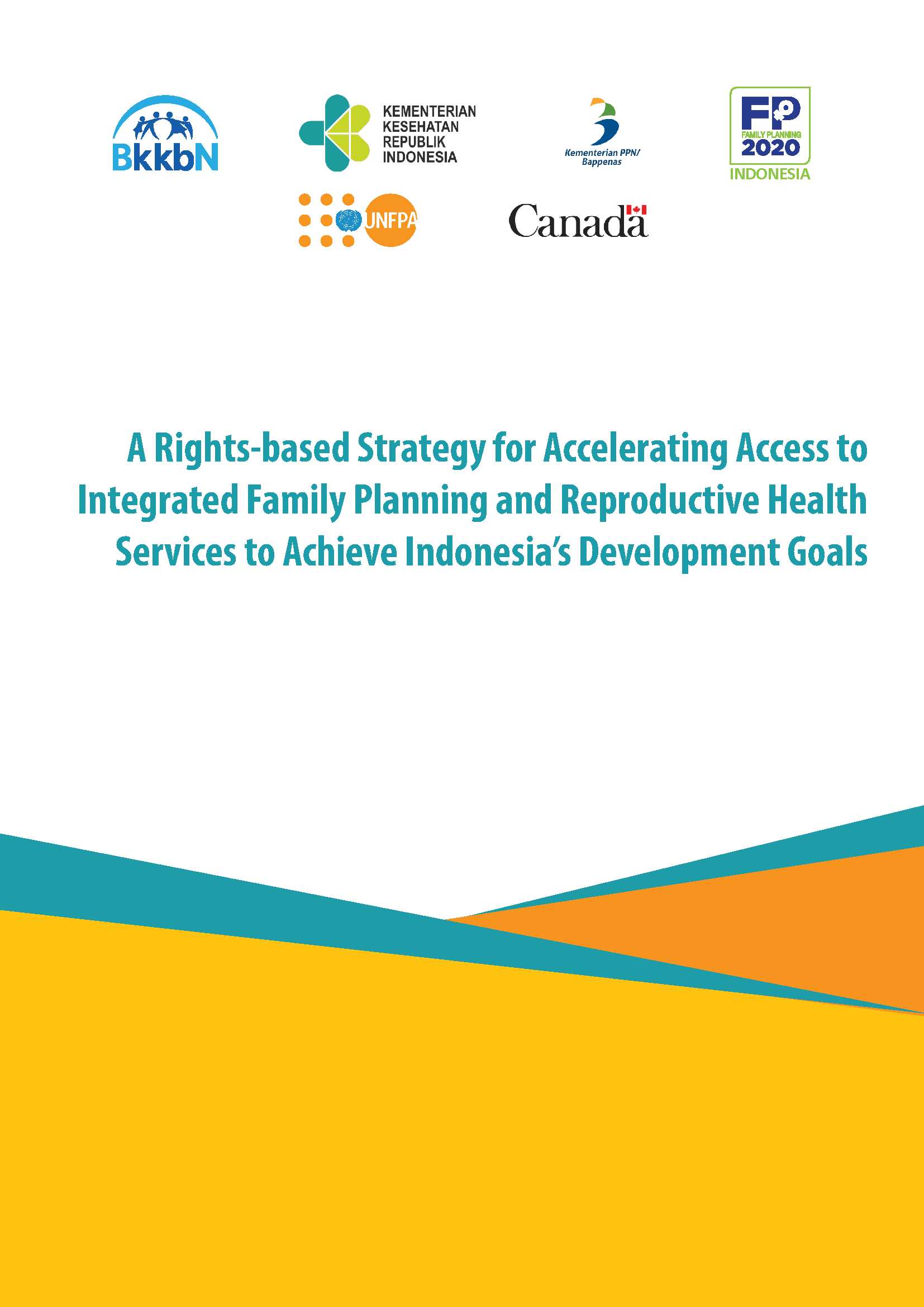
A Rights-Based Strategy for Accelerating Access to Integrated Family Planning and Reproductive Health Services to Achieve Indonesia’s Development Goals
Indonesia is a signatory to the global development agenda of 2000 (Millennium Development Goals (MDGs) and Sustainable Development Goals (SDGs).The Rights-Based Family Planning Strategy was developed during the era of MDGs.
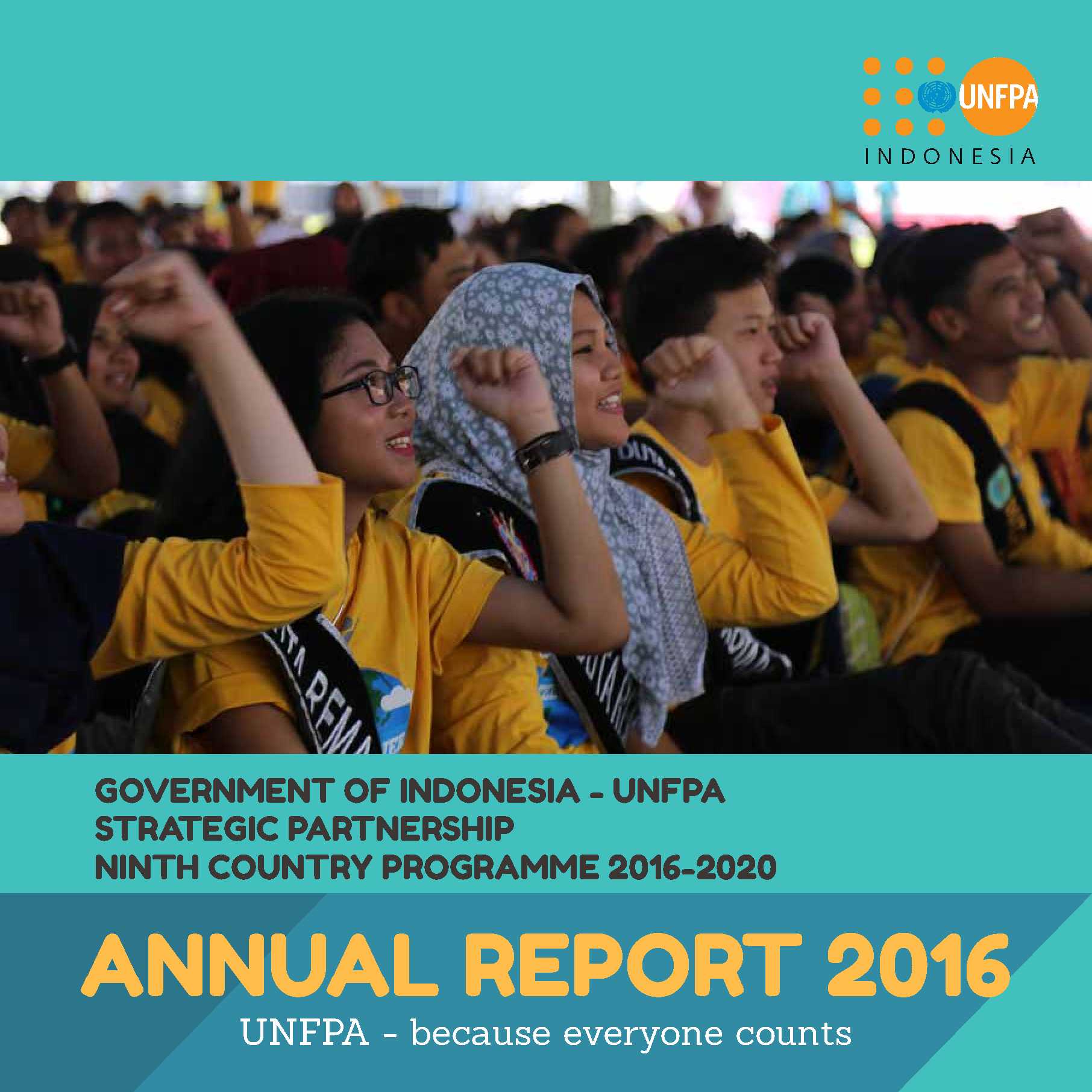
2016 UNFPA Indonesia Annual Report
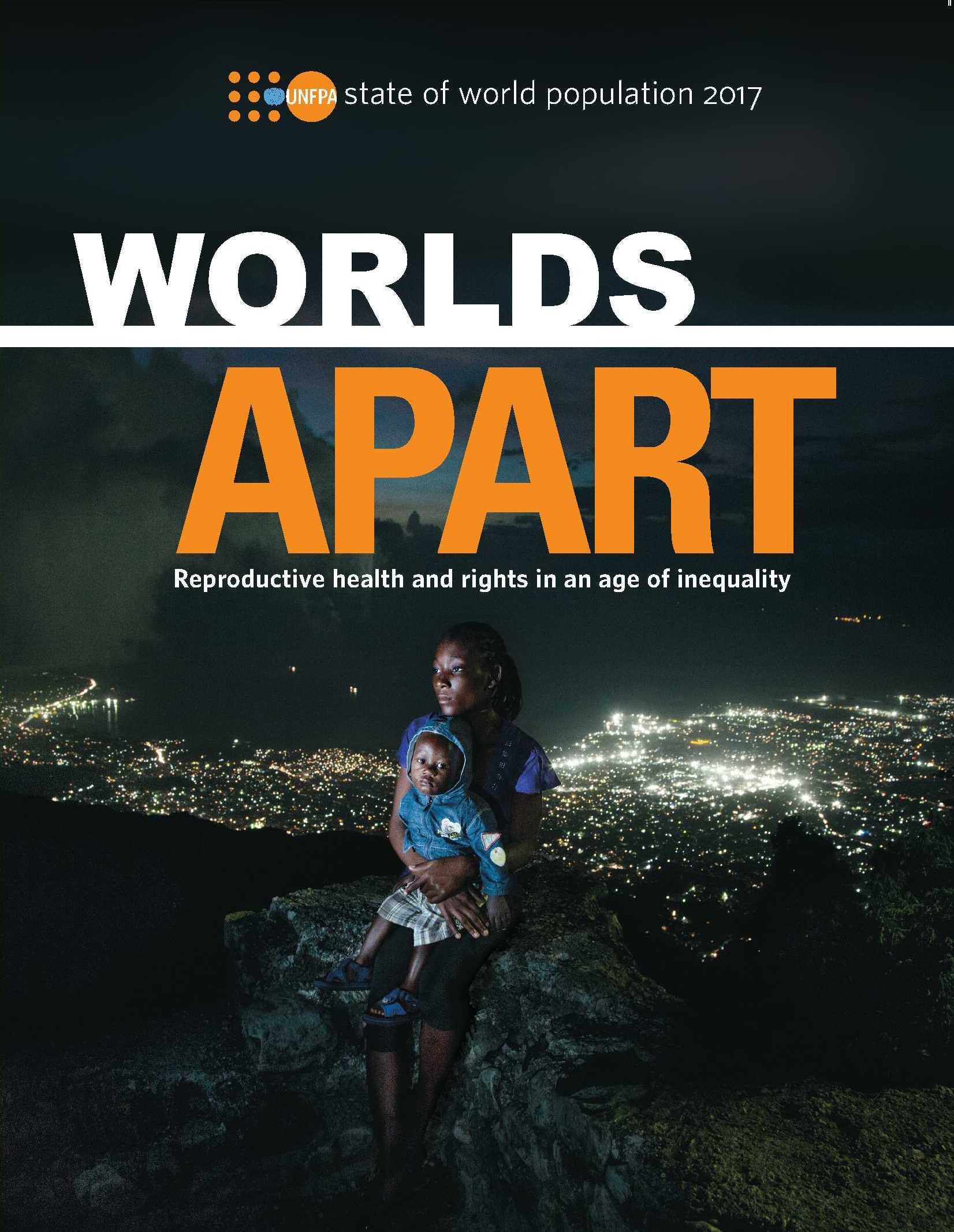
State of World Population Report (SWOP) 2017
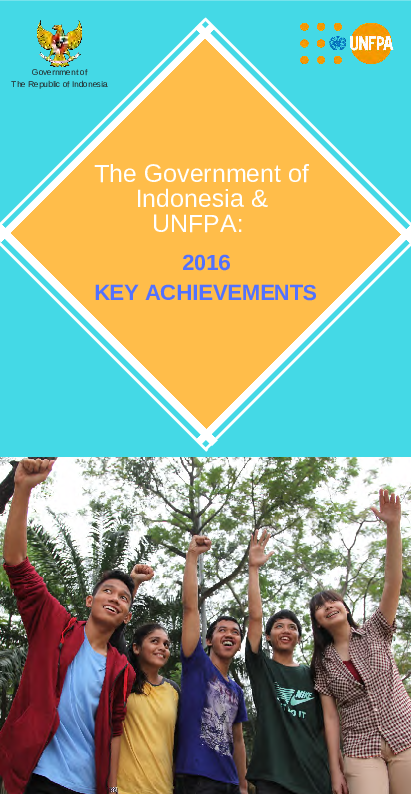
The Government of Indonesia & UNFPA: 2016 Key Achievements
The Government of Indonesia & UNFPA: 2016 Key Achievements
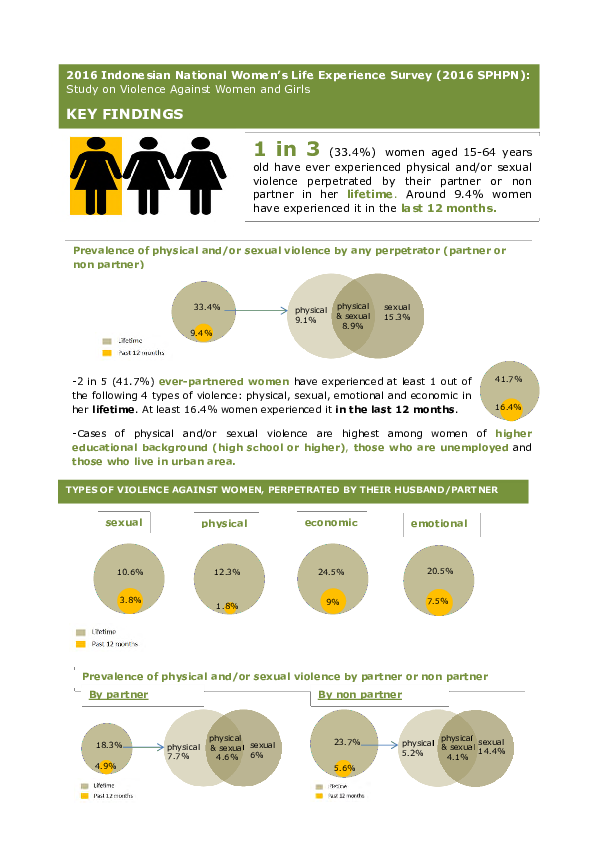
Key Findings of 2016 VAW (Violence Against Women) Survey in Indonesia
1 in 3 (33.4%) women aged 15-64 years old have ever experienced physical and/or sexual violence perpetrated by their partner or non partner in her lifetime. Around 9.4% women have experienced it in the last 12 months.